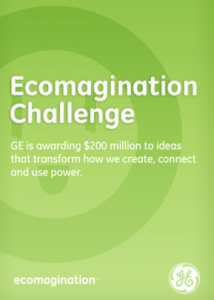I first heard the term "Smart Grid" in 2005 when I was invited to a meeting of the GridWise Architecture Council in Denver to discuss possibilities for organizing a collaborative Smart Grid event.
With a background in building automation and energy management, I could easily grasp the concept of Smart Grid -- basically, connect and automate everything from generation to consuming devices to deliver greater efficiency. That's all there is to it ... right?
Oh, naiveté is such a wonderful thing. After organizing collaborative events at the center of the worldwide energy discussion for several years, here are 10 things I've learned.
1. Smart Grid is quite complex and touches almost everything.
With Smart Grid, nearly every electronic device will be connected. For example, the grid is connected to your home, which is going to be connected to your electric car, which will be connected to your GPS and the internet, which is connected to your email and social networks. Your car will also connect with the charging station at your office building. The building may even buy power from your car if you can offer a lower rate than the utility. So, that building will be connected to your bank account, where it will automatically deposit the amount "negotiated" by the building and your car. It doesn't end there. The car will be clever enough to know -- by looking at your schedule -- that you have a 40-mile drive to dinner so it can leave enough juice to get you home.
2. Smart Grid touches everyone.
Getting Smart Grid right is a key part of the broader clean and sustainable energy trend cutting across many key global issues, including security from oil-dominated petro-dictators, to climate change, to sustained economic growth, to the well being of people and the planet. Many have compared Smart Grid to the Apollo project, but in reality, it's broader and more important than that. It affects pretty much everything and everyone. As such, all types of peoples and organizations will play a role, and very few are excluded. As Smart Grid becomes so far-reaching, education will become more and more important.
3. People need to get smart about electricity -- education is key.
Let's face it, electricity is just there. We flick a switch, the light comes on, and that's where our understanding stops. We know very little about the energy system fueling our digital society. But unless we upgrade our 20th century infrastructure to a smarter, cleaner, and more sustainable grid, many of the electrical luxuries we've taken for granted could be stripped away -- in the form of blackouts, soaring electrical rates, and environmental consequences. With Smart Grid, it's important for customers to not only understand why it's necessary, but also to have a realistic understanding of the benefits. For the first time, consumers will start seeing their real-time consumption and billing data, while realizing the consequences of their actions. Without proactive engagement, participation could suffer, and utilities could even experience backlash (as we've seen in California) -- rendering the business case built around consumer participation essentially useless.
4. Smart Grid can be an economic driver.
If venture capitalists (VC) are any indication of economic potential, then we have a winner. VCs are swarming around Smart Grid and clean-tech start-ups like bees on honey. The US government is also investing -- $4.5 billion, to be exact. Why? Because Smart Grid will create economic growth and jobs. If we compare Smart Grid to the creation of the Internet, the potential for technology and innovation is almost unprecedented. Think: smart phones, iPods, Facebook -- all innovations enabled by the Internet. Innovation drives jobs, and if we get standards right (i.e. open), the Smart Grid playground will continue to fill with excited entrepreneurs and start-ups, and thus, jobs.
5. Standards are great; let's all each have one.
In my recent global travels, I experienced both standards "done right" and standards "done wrong." Ethernet cables and Internet -- "done right," because they're the same across the globe. Electrical outlets and plugs -- "done wrong," as different adapters are needed almost everywhere. My hope is that Smart Grid evolves like the Internet, and we can develop global standards. The concept of encouraging proprietary standards -- "let's all each have one" -- and waiting for a de-facto winner can't work here. We don't have the time for a VHS-Beta battle to take place in the market. Energy is too important.





 Touché par la crise économique mondiale de 2008-2009, le jeune marché du M2M ( Machine to Machine ) a connu un
Touché par la crise économique mondiale de 2008-2009, le jeune marché du M2M ( Machine to Machine ) a connu un  Le smart metering, ou l'utilisation de compteurs intelligents pour ajuster en temps réel offre et demande, a le vent en poupe et devrait se développer rapidement dans les cinq ans à venir, une fois que les derniers problèmes (
Le smart metering, ou l'utilisation de compteurs intelligents pour ajuster en temps réel offre et demande, a le vent en poupe et devrait se développer rapidement dans les cinq ans à venir, une fois que les derniers problèmes ( 



Les commentaires récents